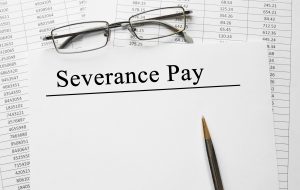June 27, 2017

Two years ago, I blogged about a National Labor Relations Board decision restoring an employee’s job after the employee posted a profane blog about his supervisor’s mother- “Can You Insult Your Boss’s Mother at Work and Avoid Dismissal? Maybe so!”
After a recent Second Circuit decision, we can now change “Maybe so” to “Yes!” In National Labor Relations Board v. Pier Sixty, LLC, 855 F.3d 115 (2d Cir. 2017), the Circuit Court unanimously affirmed the NLRB’s reinstatement decision.
The original NLRB decision, Pier Sixty, LLC and Perez, 362 NLRB 59 (March 31, 2015), arose after a supervisor issued harsh, loud orders to employees. Right away, one employee (Perez) posted comments on Facebook calling the supervisor an obscene name. Then Perez directed obscene Facebook comments at the supervisor’s mother and “entire family”. The employer fired Perez. By a 2-1 vote, the National Labor Relations Board (NLRB) held that the firing violated the National Labor Relations Act, and ordered Perez’s reinstatement, because Perez had engaged in protected, concerted activities.
The factual context of the case is important. The employer was a New York City caterer. The employees had complained about management mistreatment. A union election was imminent. The employer had imposed a “no talk” rule on employees pending the election. At a banquet, the supervisor loudly told the employee and other servers to “stop chitchatting” and then loudly ordered the staff to “Spread out, move, move” within guests’ earshot.
The supervisor’s order upset Perez. A co-worker suggested that Perez take a break to cool down. While on break, Perez posted his Facebook messages. After the obscene comments, Perez concluded by saying, “Vote YES for the UNION!!!!!!!”
The NLRB found that Perez addressed supervisory mistreatment of employees and sought redress through the union election, and so his comments were protected concerted activity. Perez’s vulgarity was an impulsive act that did not turn his outburst into unprotected activity. The NLRB also considered whether the employer found the language offensive and prohibited the language, and whether firing Perez was disproportionate to his offense. The NLRB noted that vulgar language filled the workplace. (None specifically was directed at others’ families, however.) Employer rules prohibited profanity, but no such rule was produced during the NLRB proceedings.
The NLRB decision did not end the battle, however. The NLRB petitioned to the Second Circuit to enforce its decision. Pier Sixty petitioned to review and overturn the decision. The appellate courts’ review of NLRB decisions defers strongly to the agency. On factual findings, the Second Circuit must uphold the NLRB if “substantial evidence in light of the record as a whole” supports the NLRB. “Substantial evidence” means “such relevant evidence as a reasonable mind would accept as adequate” to support the NLRB’s conclusion. On legal issues, the courts have more latitude to overturn an agency but must still give considerable deference to the Labor Board.
Applying these standards, the Second Circuit upheld the NLRB. The Second Circuit recounted the adversarial labor/management atmosphere at Pier Sixty and the fact that profanity was tolerated in the workplace. The court also noted that the comments appeared on an online forum, not in front of customers, and that the employee had removed the post after learning that the post was being viewed publicly. The court did hold, however, that the Facebook post was “at the outer bounds of protected, union-related comments” and referred to the need to be sufficiently sensitive to employer’s legitimate disciplinary concerns.
Given the Second Circuit’s cautionary language, and a possible rollback on pro-union decisions with a new NLRB, the Pier Sixty decision may stand alone for the foreseeable future. But the issue of what an employer may do to limit workplace speech without violating labor laws will arise again and again in this era of social media communication.
If you have any questions, please contact Thomas D. Rees at 610-275-0700 or via email at trees@highswartz.com.
The information above is general: we recommend that you consult an attorney regarding your specific circumstances. The content of this information is not meant to be considered as legal advice or a substitute for legal representation.




 NORRISTOWN, Pa. (June 20, 2017) – Full-service law firm
NORRISTOWN, Pa. (June 20, 2017) – Full-service law firm 
 NORRISTOWN, Pa. (June 19, 2017) – The full-service law firm
NORRISTOWN, Pa. (June 19, 2017) – The full-service law firm 

